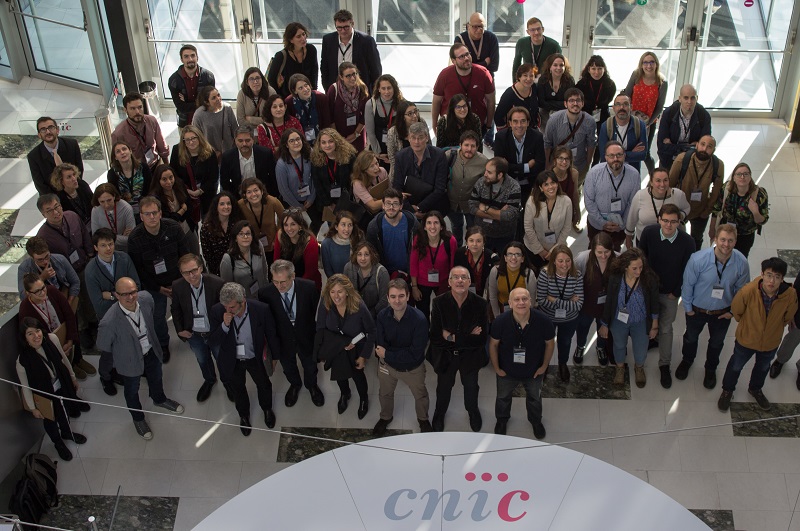CNIC Conference: new concepts in age-related cardiovascular disease
One of the diseases most affected by aging is cardiovascular illness. In fact, it is already considered the most important risk factor for this disease
Old age is connected with traditional risk factors: the older we are, the longer we are exposed to them. However, this is not enough to explain why aging increases cardiovascular risk. Cholesterol, a sedentary lifestyle or a poor diet are cardiovascular risk factors; however, in recent years it has been shown that aging, on its own, is one of the main causes.
A new edition of the CNIC Conference, entitled ‘New concepts in age-related cardiovascular disease’, was held at the National Center for Cardiovascular Research (CNIC) from October 24th to 26th.
Organized by three CNIC researchers, Vicente Andrés, José J. Fuster and Andrés Hidalgo, and a professor at Columbia University (USA), Allan Tall, the meeting hosted world experts in the field of aging related to cardiovascular disease.
The aging of the population is one of the most important demographic phenomena of our time. Its global impact is medical, social and economic. Age is also considered one of the most important risk factors for cardiovascular disease yet the underlying mechanisms are still not fully understood.
In recent years, studies have been published on a series of mechanisms specifically linked to aging that are completely independent from traditional risk factors. These new mechanisms, which are relevant in both cardiovascular and cerebrovascular disease, are completely independent from those known until now and, therefore, open the door to therapies and prevention strategies that are completely different.
Age is also considered one of the most important risk factors for cardiovascular disease yet the underlying mechanisms are still not fully understood.
Some of the mechanisms that stand out are: the relationship between cell senescence and cardiovascular disease; alterations between the vascular-neural-immune system as a cause of neurodegenerative diseases associated with age; somatic mutations, clonal hematopoiesis and CVD, or alterations in hematopoiesis during aging and its role in CVD.
Nonetheless, experts explained that it is not about ignoring the importance of preventing traditional risk factors, which have greatly reduced the mortality from these diseases, because our lifestyle is actually something that we can change.
In addition to Dr. Valentín Fuster, Director of the CNIC, there were also many other renowned participants who attended this scientific forum, such as Dr. Filip Swirski, from Harvard University, Costantino Iadecola, from the Cornell School of Medicine in New York, and Paul Frennette, from the Albert Einstein College of Medicine, who will deliver the keynote Conference of The Company of Biologist (COB), and Spanish researchers who are experts in aging and cerebrovascular diseases, like, Dr. M. Ángeles Moro, of the Complutense University of Madrid (UCM) and Dr. Manuel Serrano, from the Biomedical Research Institute (IRB) of Barcelona, who was in charge of the EMBO keynote Conference.
The Company of Biologist (COB) awarded the best short talk and the best poster. The winners on this occasion were Magda Hamczyk, and Álvaro Macias, respectively, both CNIC researchers. The award evaluation committees were made up of speakers with no conflict of interest in the work to be evaluated: Poster prize committee: Sidd Jaiswal, Hartmut Geiger, Chloé James and Esther Lutgens; Short talk committee: Paul Frenette and Andrés Hidalgo.











